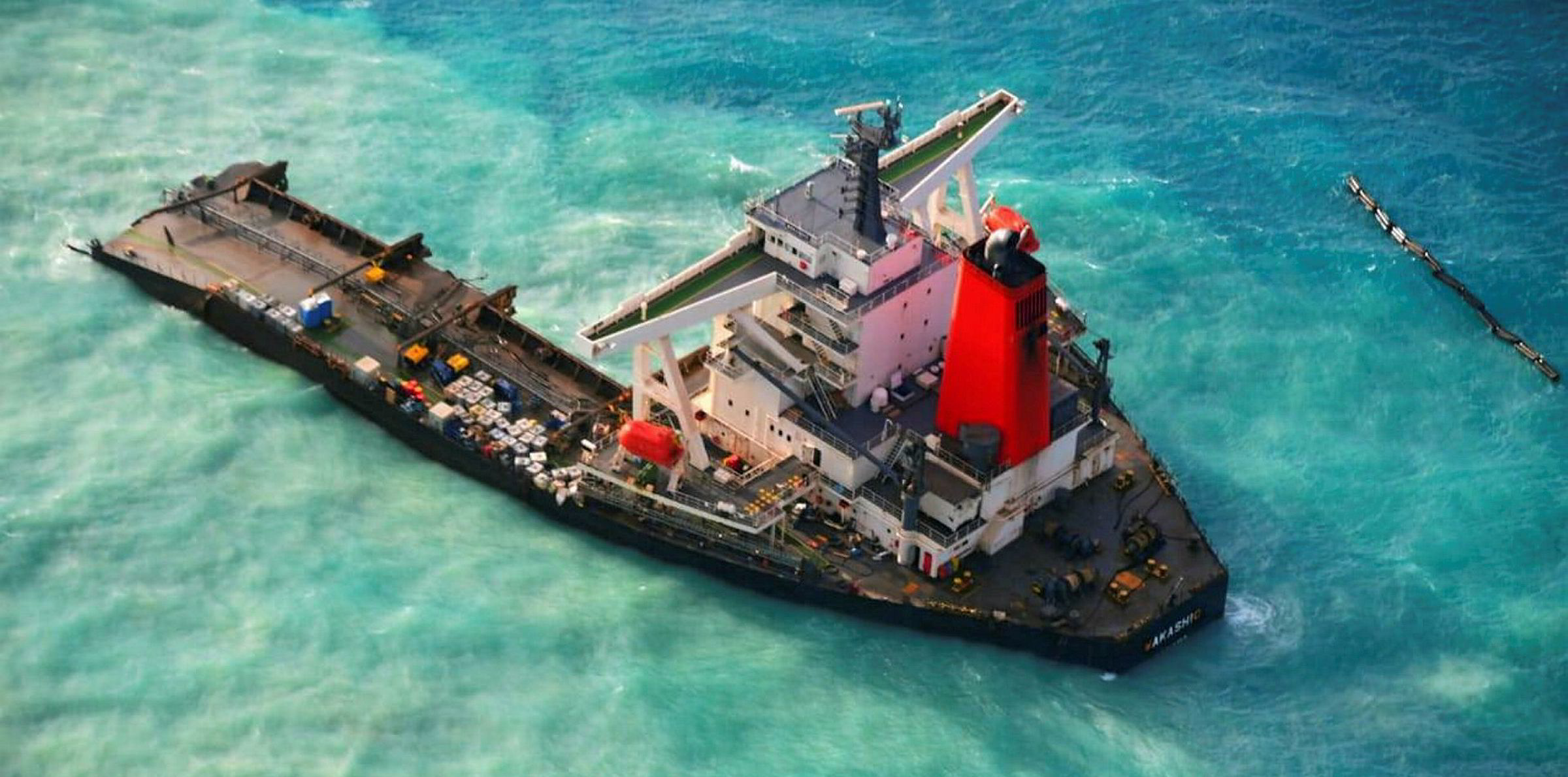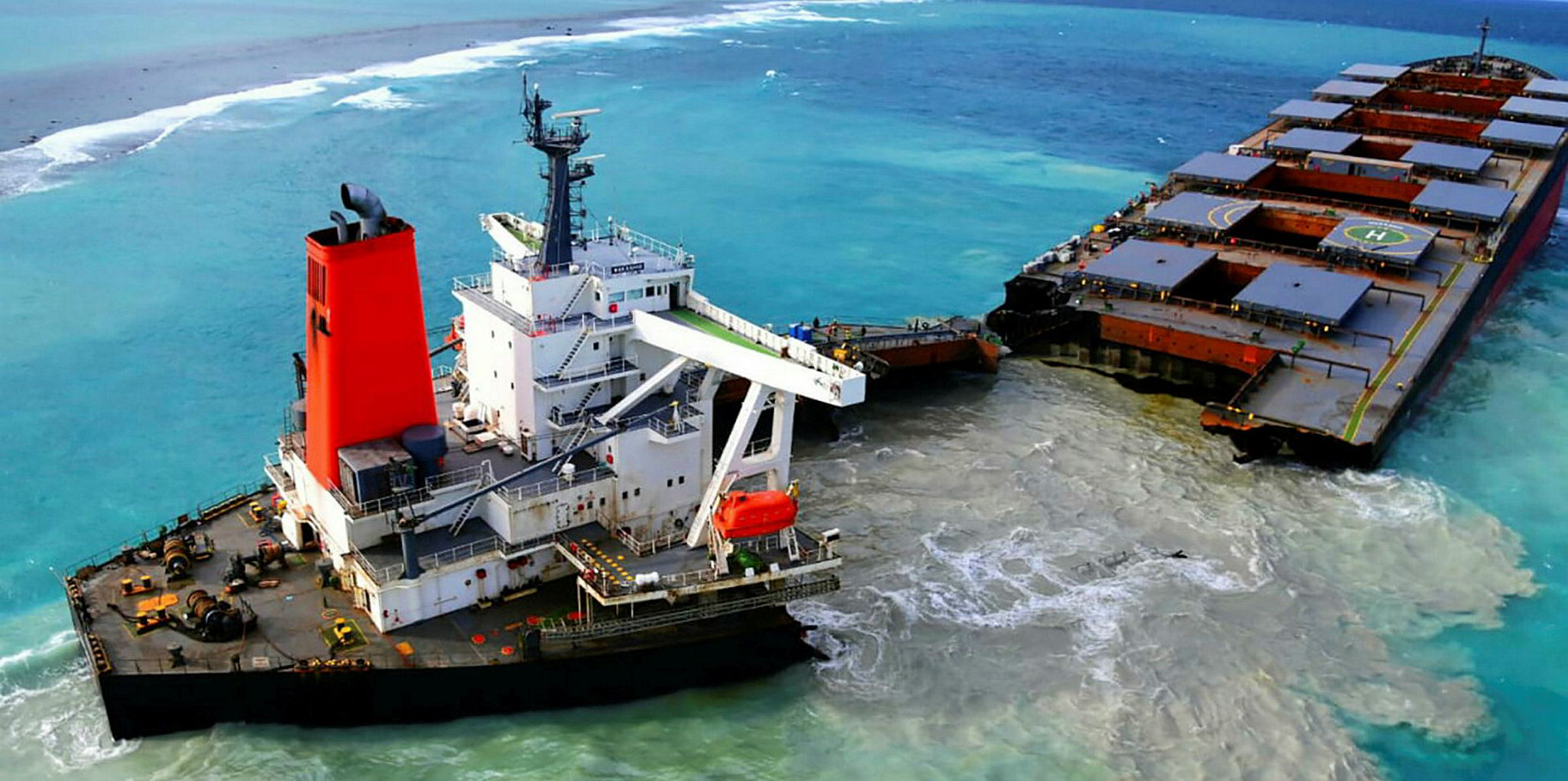Mitsui OSK Lines and Nagashiki Shipping have come in for criticism over the handling of the grounding of the 203,000-dwt Wakashio (built 2007) off Mauritius in late July.
The response to the incident on 25 July 2020 has been described as “insufficient” at several steps, while a “better strategy” could have “lessened the damage”, according to a leading crisis reputation management expert.
“A large vessel aground on a coral reef spilling oil into enticing turquoise waters is always a huge problem,” Dustin Eno of Navigate Response said.
“But, in the case of the Wakashio, a better communications strategy could have lessened the damage done to the reputations of the companies involved and to our industry.”
Eno said, as happens all too often in our industry, the media and communications response was “insufficient at several steps”.
“Communications should have started much sooner,” Eno said. “By the time the charterer and the owner released statements on their websites — two weeks after the initial grounding — public perception and anger had already formed."
According to Eno, locals were widely quoted as saying they had “been abandoned by the company and government”, and had no choice but to take the clean-up into their own hands.

“The government, in partnership with the companies, should have taken a clear communications lead and proactively engaged with the community from day one,” Eno said.
The crisis response manager said better coordination of messaging was needed, as it often appeared that the parties “were not working together”.
“The failure to coordinate information and messaging eroded trust in those who were supposed to be responding to the situation,” Eno said.
“This is one of the reasons that the US uses a joint information centre [JIC] and a lead public information officer [PIO] to focus the communications for major incidents.”
In addition, Eno said the tone of the communication should have “matched the audience” and that there should have been more empathy for those directly impacted.
Eno added that while the owners apologised publicly, the tone of the admission was “more suited to a Japanese audience” than to a Mauritian or global audience.
He also observed that throughout the incident, media outlets reported many of the simple facts incorrectly, including frequently referring to the capesize bulker as a tanker.
“A tanker is scarier than an empty dry bulk vessel and that was just one of many facts that was not reported correctly,” he said.
“Communicating effectively for an environmental disaster is incredibly difficult.
“It depends on multiple groups working together and understanding the cultures and perspectives of the audiences that need to be reached.”
In response, MOL told TradeWinds that as charterers, its "priority from day one" has been to contribute to a swift recovery from the oil spill, and restoration of the environment and community through "specific support activities that meet local needs, and still is".
"We agree with Mr Eno’s comment that communicating effectively for an environmental disaster is incredibly difficult, and this could not have been done without the support from the local society and coordination between the governments/parties involved,” an MOL spokesman said.






